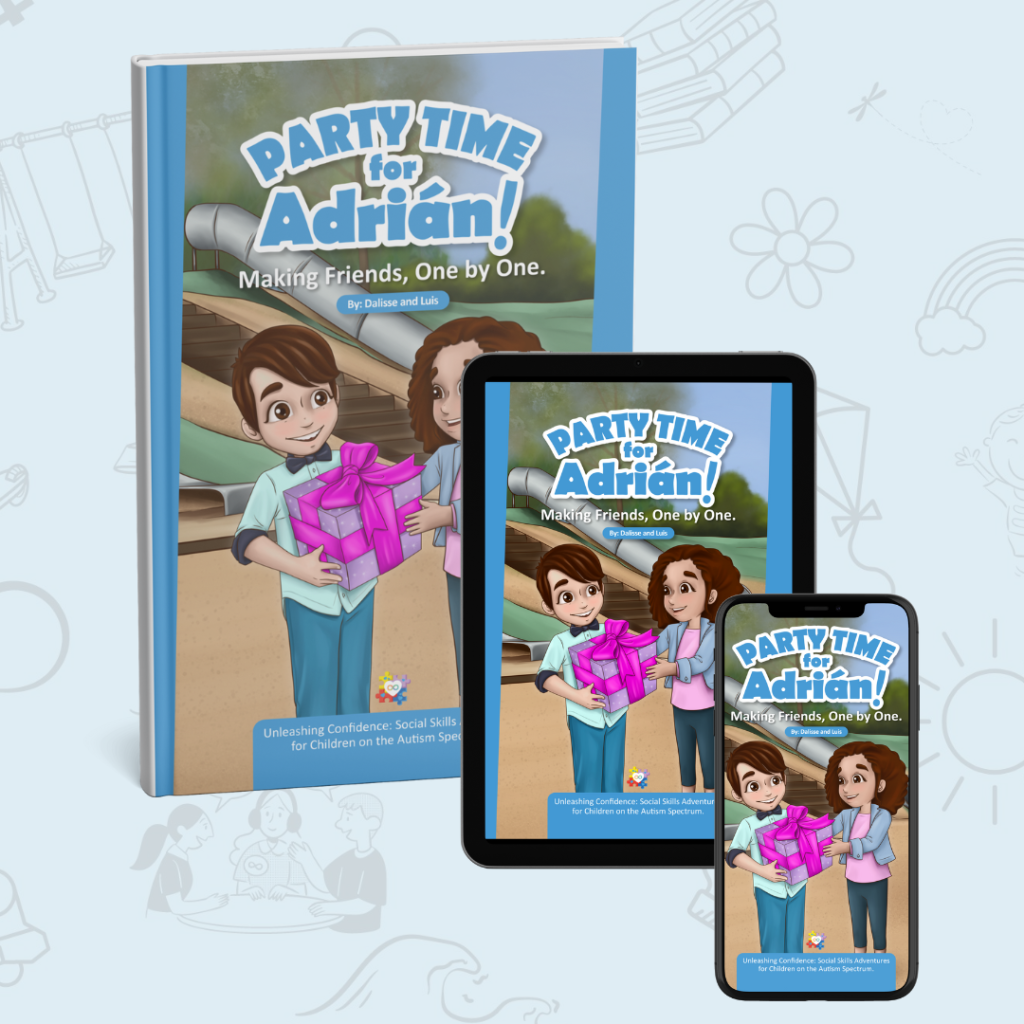
Hi everyone!
Hi everyone!
I’m Dalisse, a proud mom of two incredible boys, Adrián (10) and Guillermo (4), who are both autistic. If you’re a parent of an autistic child, you know how social gatherings can feel like a rollercoaster of emotions—both for our kids and for us. We want them to have fun, make friends, and feel included, but the sensory overload and social complexities can be overwhelming. It’s not just about picking the right gift or outfit; it’s about preparing for the entire event, from the moment the invitation arrives to the ride back home.
The Parent’s Perspective: The “What-ifs”
As parents, it’s natural to worry. We’ve all been there, asking ourselves:
- Will they feel overwhelmed by the noise and crowds?
- Will they understand the social cues or follow the rules of group games?
- Will they make friends and have fun, or will they feel left out?
These “what-ifs” can be stressful, but here’s the thing: every autistic child is unique. What works for one may not work for another. The key is preparation, patience, and finding what works best for your child.
The Child’s Perspective: The Anxiety

For many autistic children, social gatherings can bring a mix of excitement and anxiety. They might worry about:
- Sensory overload: Loud noises, bright lights, unfamiliar smells, or even the texture of party food.
- Social expectations: Understanding unspoken rules, like taking turns or reading facial expressions.
- Unpredictability: Not knowing what will happen next or how long the event will last.
As parents, it’s our job to help them navigate these challenges while celebrating their unique way of experiencing the world.

Tips for Supporting Your Child at Social Gatherings
Over the years, we’ve learned a lot about helping Adrián and Guillermo feel more comfortable and confident at social events. Here are some strategies that have worked for us:
- Plan Ahead
- Talk to your child about the event beforehand. Use a visual schedule with pictures or drawings to show what will happen (e.g., arrival, games, cake, goodbye).
- If possible, visit the venue ahead of time to help your child get familiar with the space.
- Create a Sensory-Friendly Environment
- Pack a “sensory kit” with noise-canceling headphones, sunglasses, or a favorite toy.
- Let the host know about your child’s needs, and ask if there’s a quiet space where they can take a break if things get overwhelming.
- Practice Social Skills
- Role-play social scenarios at home, like greeting friends, taking turns, or asking to join a game.
- Use social stories or books (like Party Time for Adrián) to help your child understand what to expect.
- Celebrate Small Victories
- Focus on progress, not perfection. Did your child say hello to one person? Did they stay for 15 minutes longer than last time? Celebrate those wins!
- Consider Social Skills Groups
- If your child struggles with social interactions, a social skills group can provide a safe and supportive environment to practice.
Our Story: Party Time for Adrián
I’ll never forget Adrián’s first birthday party invitation. I was a bundle of nerves. Would he handle the noise? Would he join the games? Would he feel included?
We spent weeks preparing. We talked about the party, practiced social skills, and even created a visual schedule. When the day came, Adrián surprised everyone—including me—by making a new friend and joining in the fun. It wasn’t perfect, but it was progress, and that’s what mattered most.
That experience inspired me to write Party Time for Adrián: Making Friends One by One. This heartwarming story follows Adrián as he navigates a birthday party with the help of his friends, supportive family, and a few key social strategies. It’s a resource for parents, caregivers, and educators who want to help autistic children feel prepared and confident in social situations.
My New Book: Party Time for Adrián!

You’re Not Alone
Raising autistic children comes with its own set of challenges, but it’s also an incredibly rewarding journey. Social gatherings might feel daunting at first, but with the right tools and support, our kids can thrive.
Let’s Connect!
What strategies have worked for your child at social events? Share your tips in the comments—I’d love to hear from you!
Together, we can create a more inclusive and supportive world where our autistic children can shine.
With hope and joy,
Dalisse – Loving Pieces Books
